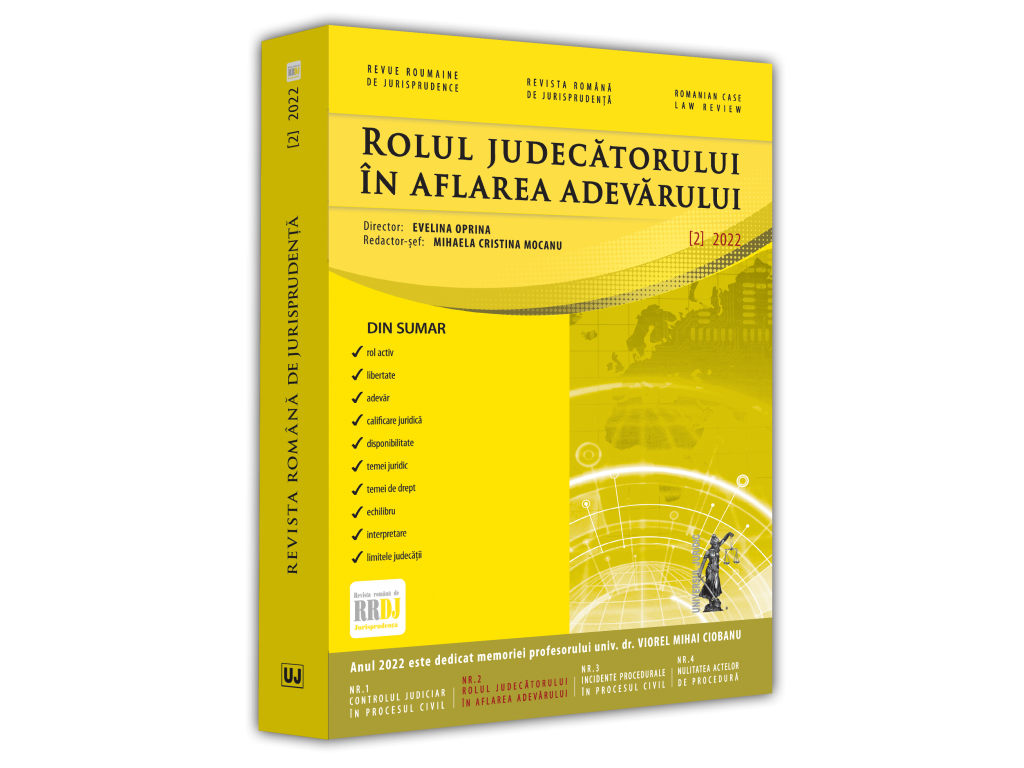Characteristics and legal value of the admission of guilt in summary proceedings
DEZBATERI
Abstract
In the abbreviated trial procedure, the admission of guilt by the accused is a procedural act (negotium iuris), typical (its form is determined), special (it concerns a specific judicial activity), optional (its exercise is not expressly provided for by law), judicial and informal (it is a document drawn up by the defendant – one of the private official parties to the criminal proceedings), public (it is made known to all participants in the criminal proceedings), oral or written (the oral form expressed in court corresponds, with equal legal effect, to the written form embodied in an authentic instrument).
At the same time, it is a personal procedural act (it cannot be expressed through a lawyer, procedural substitute, legal or conventional representative), temporary (it can be expressed until the first trial date with the legal procedure completed and the case in progress), indivisible (it is impossible to apply a mixed trial procedure in the same case), singular (retains its validity in subsequent stages of the trial), irrevocable (cannot be withdrawn), voluntary (cannot be obtained by coercion, deception or error), unfounded (no reason is required), express and unequivocal (no previous statements by the defendant may be interpreted as an admission of guilt).
As an act of disposition, the statement of admission of guilt taken pursuant to Article 375 of the Criminal Procedure Code does not produce evidence, nor does it exempt the judicial body from producing it, it is strictly a procedural condition which gives the trial a specific content.
Thus, this statement does not derogate from the standard of proof beyond reasonable doubt and does not in itself constitute grounds for overturning the presumption of innocence, having the legal value of an isolated and independent procedural act, which cannot complete and, even more so, cannot replace an insufficient body of evidence.
Since it is not evidence, the admission of guilt under Article 375 of the Criminal Procedure Code cannot be used against the accused at the stage of evaluation of the evidence in the event of rejection of his request for trial in abbreviated proceedings.
Keywords: admission of guilt, procedural act, probative value, finding the truth








